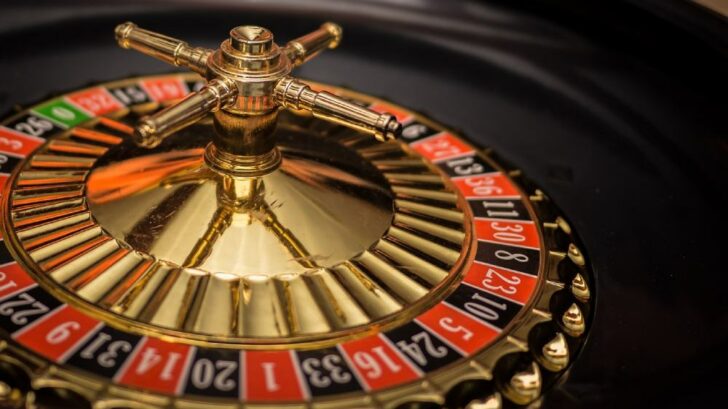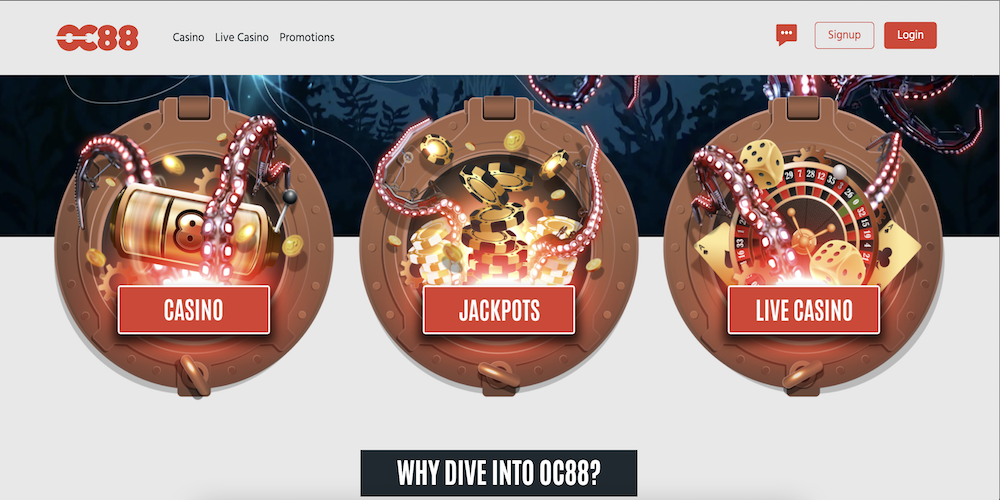Are Roulette Spins Independent or Related?

In this article, we break down one of the most asked questions of all time. Are Roulette Spins Independent or do they have some sort of relation to one another. Although it would be easy to answer that question with a simple and resounding ‘Yes’, we delve into more detail about roulette. Continue reading to learn more about the mechanics of a roulette spin.
An Introduction
Roulette is one of the oldest and most popular casino games, originating from France. The name “Roulette” is a French term that translates to “little wheel”. In this analysis, we will cover the rules of the game and determine the age-old question of whether spins are related or not. Once you know the answer to that question, you will be able to head over to our jackpot games to put this knowledge to good use.
The Basic Rules of Roulette
Roulette is a game that focuses on a wheel that is divided into 37 or 38 coloured numbered segments (depending on the version you are playing). A ball is released into the wheel and the outcome is determined by the coloured numbered pocket that it stops in. Before a round begins, players will bet on where they believe the ball will stop. The bets payout if the player predicted the outcome correctly and lose if they were incorrect while placing their bets.
There are three main versions of the game, European Roulette, French Roulette and American Roulette. European and French Roulette are almost the same in every aspect, except for the language of various bets and two minor changes in the rules. Both versions of the game have 18 red numbers and 18 black numbers (1 to 36). There is a single green 0 that is neutral.
In American Roulette, the same numbers are used but there is an additional green 00. Essentially, the 38thnumber increases the house advantage from 2.7% to 5.26%. However, despite these minor differences between the versions, the same basic roulette rules apply to these games.
Types of Bets
In all roulette variants, players place their bets on the betting area before the round begins. Once they have completed their bets, the ball is released into the rotating wheel and the result is determined by the pocket it eventually stops in.
There are two main categories of roulette bets, known as Inside Bets and Outside Bets. Essentially, Inside Bets are harder to win but pay out bigger prizes than Outside Bets. Below, we have a complete list of the bets that are available in these games.
Inside Bets

These are wagers that are placed within the betting area on the coloured numbers. The types of bets and their payouts include:
- Straight Up Bet – a bet on a single number that pays 35:1.
- Split Bet – a bet on two adjacent numbers that pays 17:1.
- Street Bet – a bet that covers three numbers and pays 11:1.
- Corner Bet – a bet on four numbers that share a corner on the betting are and pays 8:1.
- Line Bet – A bet on two neighbouring streets, covering a total of six numbers that pays 5:1.
- Basket Bet – A bet on the numbers 0, 00, 1, 2, 3. It is exclusive to American Roulette and pays 6:1.
Outside Bets
This category of bets is placed in the betting area on the perimeter of the coloured numbers. It is the most popular type of roulette bets and includes:
- Column Bet – a bet on an entire column that covers 12 numbers and pays 2:1.
- Dozen Bet – a bet on a dozen of numbers (1-12, 13-24, 25-36) that pays 2:1.
- Red/Black Bet – a bet on all of the red or black numbers that pays 1:1.
- Even/Odd Bet – a bet on all of the even or odd numbers that pays 1:1.
- High/Low Bet – a bet on the lower (1-18) or higher (19-36) numbers that pays 1:1.
Other Roulette Bets
In many roulette variants, players will also find a racetrack betting area and the chance to bet on neighbours. The racetrack betting area covers certain segments of a roulette wheel while the neighbours bet covers between one and five neighbours of a specific number, covering between 3 and 11 numbers in total.
Are Roulette Spins Independent or Related?
If you have ever joined a roulette table, you will have noticed a scoreboard that keeps track of the previous 16 or 20 rounds. The scoreboard shows the number that landed and its colour. Many players use the scoreboard to try and identify patterns of play to give them an advantage for the corresponding spin. Does this actually work? The simple answer is no, and here’s why.
Every Roulette Spin is Independent!
Before trying to identify patterns or connections between previous rounds, we must stress the importance of understanding that every spin is independent. Roulette is a game of chance and pure luck. As mentioned in the basics of roulette, a ball is spun into the rotating wheel and the result is determined by where it lands. There is no way that the result can be influenced by previous rounds or by identifying various patterns within play.
For instance, if you take a coin out of your pocket and play a game of heads or tails, there is a 50% chance that it will land on either side of the coin. However, every time you flip the coin, the 50/50 chance will always remain the same. In theory, if you flip the coin ten times in a row, it may land on heads ten times in a row, tails five times in a row, or simply go back and forth between the two.
The same logic applies to Roulette. If you join a table and notice that the previous five rounds landed on a black number, there is no guarantee that it will land on a black number in the corresponding round. There is also no guarantee that the following spin will be red either. It is essential to understand that every spin is unique and independent from anything that has happened in previous rounds.
The Gambler’s Fallacy

One of the many mistakes players do is believe that Roulette spins are related. Many players will see a table that has landed on five successive black numbers and therefore bet on black. Their decision may be influenced to not bet against a winning streak of numbers or colours.
Other players may see five successive black numbers and bet on red, as it is surely going to land on red to balance out the play. Yet again, this logic is flawed, as the spins are independent and do not consider the previous rounds.
The Gambler’s Fallacy is an approach that players have when they believe they can identify patterns based on previous results. Typically, players will either bet in favour of previous results (as you must not bet against a winning streak) or against the results (as the opposite is bound to land to balance out the scoreboard). Ultimately, whether you bet for or against the previous results probably says more about your personality (optimistic or pessimistic) rather than your knowledge of playing roulette.
Do not Fall for Hot or Cold Numbers
Likewise, players may also identify numbers that have landed frequently and choose to avoid numbers that don’t. Regular numbers on the scoreboard are known as “hot” while numbers that never turn up are “cold”. Yet again, there is no logic behind believing in hot and cold numbers at a roulette table, as every one of the 37 (or 38) numbers have an equal chance of landing.
Probabilities of the Impossible
The probability of certain results is something that everyone can still be impressed by. In Rio Hotel and Casino in Las Vegas, a roulette table saw the red number 19 land seven times in a row. The odds of 19 landing seven times in a row are 1 in 114 billion. Thankfully, the result was recorded in a modern casino and there are pictures of evidence to show the incredibly rare occurrence.
According to certain parts of the internet, Scottish actor Sean Connery (who played James Bond in seven movies) was playing roulette at the Casino de la Vallee in Italy in 1963. Connery bet on the number 17 five times in a row but lost the first two times. On the third spin, he won 35:1 on his straight up bet on 17. He let his bet ride and the fourth spin also landed on 17. On his final spin, he let his bet ride again and the number 17 fell for a third successive time. It is reported that the Scotsman left the table with seventeen million lire, which was about £10,000 (worth £160,000 at the time). The odds of this happening were 1 in 50,653. However, there are no pictures to back this story, unlike the one above.
The Bottom Line
It just goes to show that the while spins are independent from each other, the results in probability can still appear practically impossible. Roulette is a game of luck and hence there is no patterns that you can use to increase your chances of winning. However, by using certain betting systems, you could increase your chances by managing your bankroll in a method that means you do not spend as much per spin. Thus, now that you know roulette spins are independent from one another, you can put this knowledge to good use. Feel free to visit our latest jackpot ratings to play the most popular roulette games online.
Click here to visit the 22BET Casino to discover a brand new world of online gambling














